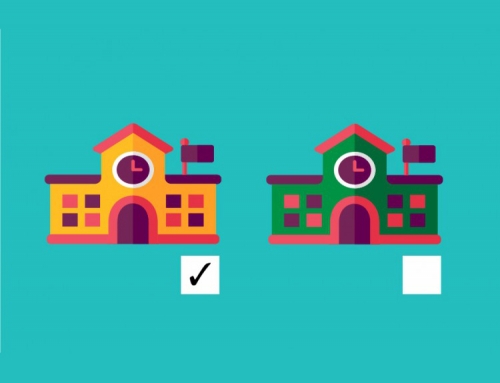By Claire Crome
 I remember it as if it were yesterday. 4.30pm, the sun was shining and we were sitting by the computer waiting in anticipation for ‘THE’ e-mail.
I remember it as if it were yesterday. 4.30pm, the sun was shining and we were sitting by the computer waiting in anticipation for ‘THE’ e-mail.
My daughter loved school. She had great friends, was on the top tables for maths and English and got consistently high marks in tests. Learning was fun!
Living in Kent the buzz about going to grammar school starts early. Children were rushing to get tutors from year 3. I never really understood this. Surely, if your child has the aptitude they will pass regardless? I’d heard of parents bribing their children, telling them they’d be taken to Disneyworld if they passed.
She decided she would take the test, as all her friends were going to, and it was encouraged by the school. We got some books and did some tests online but we were pretty relaxed about it. Her teachers had assured us she’d have no problems passing, and even if it went wrong on the day they’d support a teacher appeal. We always said that it would be her choice. She should choose the school that she felt the most comfortable in.
We live in a very conservative area, which many would consider to be fairly affluent. The local non-selective secondary school happens to be in one of the poorest areas of the borough. Our eldest daughter had been attending this school for the past two years and we’d been pleased with her progress. For her, the grammar school wasn’t an option. The school had recently been given a ‘Good with Outstanding features’ rating by Ofsted. It had worked hard to turn around its bad reputation of the 90’s having been completely rebuilt, changing its name, and bringing in excellent leadership. Despite this, I’d hear comments in the playground such as, “Well, there’s no choice round here. You have to go to grammar.” “I’m not sending my child to that school.” “If you fail we’ll look into a private school.”
Our personal experience was very different to the comments we’d hear from the primary school parents, most of whom had never even visited this school. Then again, the primary school were pushing everyone to try for a grammar, and so many parents told us you have to go! Maybe they knew something we didn’t?
Finally, the day came. Friends sent texts and posted on social media confirming the brilliance of their child.
“Yes, she’s passed.”
“Oh, you must be so proud of her, what a clever girl.”
“The first one of our family to go to grammar.”
“Who wants to go out to dinner tonight to celebrate?”
Then our email came through. My daughter had gone upstairs to text her friends to see how they’d got on. Some were not expected to pass but they had passed. No matter how they try to break the news the outcome was clear, ‘YOU’VE FAILED’.
I felt sick. I called her down, not knowing how I was going to tell her. The tears welled up in my eyes and soon in hers. I’d never seen her cry this much and I hated seeing my daughter, who I love SO much in pain. Real, physical pain. I turned to social media for hope that there may be someone out there in the same position as us, but they’d all passed. I felt so alone. I was the bad mother for putting her through it. I’d failed her. My daughter ran upstairs inconsolable. I began the process of letting friends know.
“Oh, I’m so sorry.”
“What! How did she not pass?”
“But she’s clever.”
“Well of course you are going to appeal.”
My aunt’s comment was most hurtful of all. “Even my granddaughter passed and we all thought she wasn’t as clever as your daughter.”
The next day we met with the head teacher who explained that two of her papers were way over the required score, but one was two marks under. Scores are standardised so being born in September there is no leeway. This means that a child who has been through the same amount of schooling but born in April for example, can afford to get more questions wrong but still pass. We were told by her head that she was angry with the panel. They didn’t even look at her books as they’d already put through too many children on that particular table and decided to call it a day.
So, my daughter was deemed unsuitable for a grammar education because they’d already put too many children through. Potentially with lesser scores, while another table could still be saying yes. I had no idea it was such a lottery! They told her that if parents really want to they can appeal, and she should easily get in based on her scores.
What they probably didn’t consider was that their casual remarks had already shattered a 10-year-olds confidence. A child they didn’t know, based on one day of tests that had marked her as a failure. She didn’t want to go to school the next day. She told me that she was stupid. Almost overnight her test results started to go down. She’d lost her spark. Her friends at school had all started to talk about catching the bus together and she was left feeling like an outcast.
We called the grammar schools and as predicted they said it wouldn’t be a problem at all based on her scores. The head teacher of her primary school had already said she’d be more than willing to write a letter of support. We had to make a decision. Her teachers said that they couldn’t understand how she had failed the test. She was one of the cleverest children in a very bright class, way above the national average. All of her friends and their parents couldn’t understand why we would not consider appealing. If there’s a grammar school in your area then you have to try and get in, don’t you?
We arranged a meeting with the local secondary school. They assured us that they would support her and that she wouldn’t do any better in her GCSE’s if she went to a grammar. They had a grammar stream where for English, Maths and Science the children were streamed to ensure they were pushed to the highest of their abilities. This was based on their SATs results, CAT testing scores, and feedback from their primary school. Not just one test! Her mind was made up. This was the school that was right for her.
Our daughter is now in year 9. She has a fabulous group of friends from all walks of life. Some of the children in her year passed the 11-plus but chose to go to this school because it met their needs better. Some have now left grammar school and joined this school, as they found the grammar school wasn’t the utopia they expected it to be. She still has close friends from primary school. Some are doing well at grammar and some are struggling. She continues to thrive. Not only academically but she has been given opportunities to lead as a house captain, choreograph dances for the school’s productions, she’s learning to play the flute and has been given several awards for her achievements.
The children she grew up with have similar financial backgrounds to us, live in the same area and just like us, want their children to do well in school. Yet for some reason by going to a non-selective school she has been branded as ‘not academic’.
We subsequently found out that some of her friends who passed actually got far lower scores and got in through the head teacher appeal. Had they been judged by the same table as those deciding my daughter’s fate, maybe they would have found themselves in the same situation? The difference is that they found themselves covered in glory and brimming with confidence while my child was left broken. It has taken a long time for her to regain her confidence. I owe most of this to her school. We and more importantly, our daughter have no regrets about our decision, yet we continue to face stigma from society.
Just recently there was a report in the local newspaper about a man who lives in a different part of Kent who had had been arrested for burglary. The report mentioned that he left our school in 1993 even though it has no relevance to the story and it wasn’t even the same school back then.
A local bus shelter was recently vandalised. People posted on social media that it must have been children from our school that were responsible, even though the children do not get picked up at that bus stop and there was absolutely no evidence. The thought that it could be the grammar school children was incomprehensible!
After our experience, I started to search for forums and joined social media to try and find people with their own stories to share. We couldn’t be the only ones who decided not to appeal. I needed to know I wasn’t alone. It’s hard not to get angry when people on social media are telling you that if you go to a comprehensive school ‘you’re not very bright,’ you’re ‘rif-raf’, you ‘don’t care about your child’s education, idiots’ and best of all ‘Kids who go to comps are all thugs and Sh!tes and so are their families.’
Is it any surprise that parents want their children to go to grammar school when this is the attitude? Even our own government believes that segregating pupils is a way of keeping the ‘clever ones’ away from those destined for failure.
I’m a Higher Level teaching assistant and governor at a local primary school. I’m starting my teaching degree in September. Passing the 11-plus is used as a measure of success. Many of the other governor’s children go to grammar school and I’d be putting myself in a very awkward position if I let my true feelings show. Year after year I see children, some forced into it by their parents, taking a test which has little bearing on their academic ability. Many are children who would be far better suited to a mainstream education, but this doesn’t fit in with their parent’s social status. There are always going to be some children who are exceptionally bright, but in my experience as a mother and an educator, most are amazingly average! The question has to be, why do people feel children need to be taught in a separate school? Is it snobbery? Is it because they need to feel special? Why do they think their local school couldn’t meet their needs?
I know we are the lucky ones. Two other local schools have recently been put into special measures. If you live in an area where the school is underperforming then you really do have little choice. But rather than spend millions opening up an annexe to a grammar school why could the money not be spent on getting these schools up to standard? Going to a grammar school does not turn your child into a genius. If they are happy, they will achieve and I for one will never give up on them.





